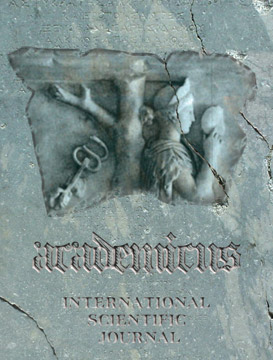Title:
Internationalization and Human Resource Management: Having intercultural understanding in the ages of globalization
Full Reference List:
| 1. | Aizenman, J, & Noy,I. (2000). 200 FDI and trade, two way linkages. NBER working paper. |
| 2. | Ajiferuke, & Boddewyn M. (1970). Culture and other explanatory variables in comparative management studies. Academy of management journal, 13, pp. 59-68. |
| 3. | Andrews, K. (2011). The concept of corporate strategy. Thind. |
| 4. | Baligh, H. H. (1994). Components of cultrure: Nature, interconnections, and relevance to the decisions on the organization structure. Management science, pp. 14-27. |
| 5. | Black, S, J, & Gregersen, H, B. (1990). A multifaceted approach to expatriate retention in international assignments. Group and organization management, pp. 461-485. |
| 6. | Caliguri, P. (2000). Selecting expatriates for pesonality characteristics: A modereting effect of personality on the relationship between host national contact and cross-cultural adjustment. Management International review, pp. 61-80. |
| 7. | Carden, G. M. (1992). Intercultural competence and expatriates. International Journal of Human Resource Management, 24 (6), 341-362. |
| 8. | Chandler, A. (1962). Strategy and strucure. Cambridge: M.I.T. |
| 9. | Chua, R, & Saba, T. (1998). The effectiveness of cross cultural practices in international assignments. IFSAM. |
| 10. | De Groot, O. J. (2014). Foreign direct investment and welfare. 196. |
| 11. | Dunning, J. (1993). Multinational enterprises and the global economy. Wesley: Addison. |
| 12. | Earley, C. C. (1897). Intrecultural training for managers: a comparaison of documentary and interpersonal methods. Academy of management journal, 30, pp. 685-698. |
| 13. | Edward, T, Rees, C, & Coller, X. (1999, 5 3). Structure, politics ans the diffusion of employment practices in multinationals. European Journal of Industrials Realtions, pp. 286-306. |
| 14. | Geert Hofstede, E. T. (1983). The dance of life. New York: Anchor Books. |
| 15. | Gertsen, M. C. (1990). Intercultural competence and expatriates. pp. 341-362. |
| 16. | Gezundhat, H. (2004). Langage et communications. Université de Toronto. |
| 17. | Harvey, D. (2000). Time-Space, compression and the postmodern condition. The global Transformation Reader, pp. 82-91. |
| 18. | Hays, R. D. (2004). Expatriate selection, insuring success and avoiding failure. Journal of international business studies, 5, pp. 25. |
| 19. | Heather, Voisey, & O’Riordan, Tim. (2001). Globalization and localization. Globalism,Localism and Identity, 37. |
| 20. | Helpman, E. (1984). A simple Theory of International Trade with Multinational Corporations. Journal of Political Economy, 3, pp. 451-71. |
| 21. | Iles, P. (1995). Learning to work with difference. Personnel Review, 24, p. 17. |
| 22. | Lee, Y, & Larwood, L. (1983). The socialization of expatriate managers. Academy of management journal, 26, pp. 657-665. |
| 23. | Levitt, T. (1983). The globalization of markets. Harvard business review, pp. 92-102. |
| 24. | Mendenhall, M., & Oddou, G. (1985). The dimensions of expatriate acculturation: A review. The academy of management review, pp. 39-47. |
| 25. | Musaraj, A. (2012). Tourism development, touristic local taxes and local human resources: A stable way to improve efficiency and effectiveness of local strategies of deve. Academicus International Scientific Journal, 3(06), 41-46. |
| 26. | Oddou, G. (1992). Managing your expatriates: What the succesful firms do ? pp. 301-308. |
| 27. | Patrice, I. (1995). Learning to work with difference. Personnel Review, 17. |
| 28. | Perlmutter Howard, C. B. (1985). Strategic Planning for global business. Columbia journal of world business. |
| 29. | Richard, F. A. (2001). Holistic approach to internationalisation. International Business Review, pp. 25-49. |
| 30. | Scannavini, K. (2013). The necessity of Intercultural Communication for a peaceful world. Academicus International Scientific Journal, 4(08), 172-188. |
| 31. | Tung, R. L. (1993). Managing cross-national and intra-national diversity. Human resource management, pp. 461-477. |
| 32. | Vulpe, T. (2004). Training for intercultural competence, avoiding failures in international assignments. CERC news, 132. |
Back to article
Academicus
International Scientific Journal
pISSN 2079-3715
eISSN 2309-1088
Address:
Sheshi i Flamurit, Rruga Muze
Al-9401 Vlorë, Albania
Tel: +355 68 60 60 555
info@academicus.edu.al
https://academicus.edu.al


